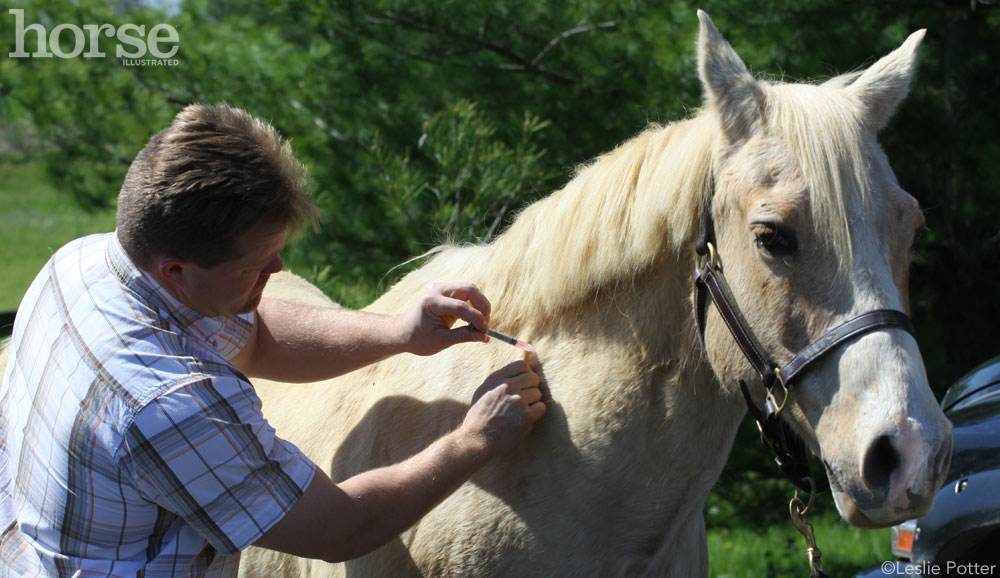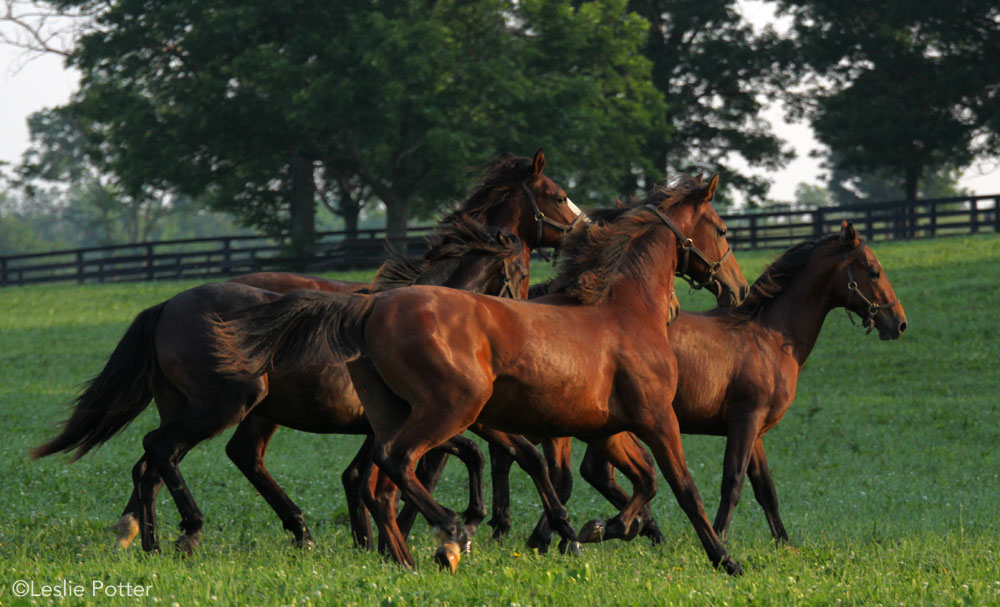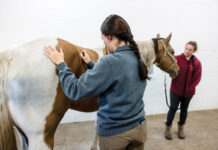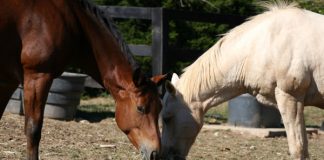The American Association of Equine Practitioners (AAEP) is a veterinary professional organization dedicated to the health and well-being of horses. They have developed a set of widely recognized guidelines for vaccinating horses against common horse diseases. Vaccination guidelines for common horse diseases can be divided into two categories: core vaccines and risk-based vaccines.

Horse Vaccination Guidelines
Core Equine Vaccines
Here is a brief description of the diseases that fall into the core vaccine category:
- West Nile– A widespread mosquito-borne, neurological disease that can kill approximately one in three clinically affected horses. Horses should be vaccinated annually prior to the onset of the mosquito season. Consider semi-annual vaccination for horses in endemic areas, horses older than 15 years, and horses with compromised immune systems.
- Eastern Equine Encephalomyelitis (EEE ) – A mosquito-borne disease that can kill 75 to 90 percent of affected horses. Horses should be vaccinated annually. Consider semi-annual vaccination for horses in endemic areas or with compromised immune systems.
- Western Equine Encephalomyelitis (WEE ) – Another potentially fatal, mosquito-borne disease found primarily west of the Mississippi River. Horses should be vaccinated annually. Consider semi-annual vaccination for horses in endemic areas or with compromised immune systems.
- Tetanus – An often-fatal disease caused by the bacterium Clostridium tetani which is found in soil and feces. All horses should be vaccinated annually.
- Rabies – An invariably fatal neurological disease caused by the bite of infected animal. All horses should be vaccinated annually.

Risk-Based Vaccines
For non-core diseases, the risk of infection varies from horse to horse. Your veterinarian will recommend disease protection based on a risk assessment for your horse, and the disease threats in your area.
- Equine influenza – A highly contagious respiratory disease that causes fever, coughing and nasal discharge. Vaccinate low-risk horses annually, and high-risk horses semi-annually.
- Equine herpesvirus (EHV) – Also known as rhinopneumonitis, EHV type 1 and EHV type 4 can cause fever, lethargy, nasal discharge and cough. Vaccinate horses annually. Consider semi-annual vaccination for horses less than five years old, horses on breeding farms and performance/show horses at high risk.
- Equine viral arteritis (EVA) – Transmitted via respiratory secretions or infected semen. EVA can cause abortions in pregnant mares and death in young foals. Vaccinate all stallions and broodmares at risk. Stallions should be tested.
- Strangles – Strangles is a highly contagious and serious infection caused by the bacterium, Streptococcus equi. The disease is characterized by severe inflammation of the mucosa of the head and throat, with extensive swelling and often rupture of the lymph nodes. Horses of all ages are susceptible, though strangles is most common in animals less than 5 years of age, and especially in groups of weanling foals or yearlings.
- Rotaviral Diarrhea – Many foals in the United States will have at least one diarrheal episode prior to weaning, and rotavirus is a major infectious cause of foal diarrhea. The disease can spread rapidly in susceptible populations, although mortality is low (<1%) with veterinary intervention.
- Anthrax – Anthrax is a fatal septicemic disease caused by proliferation and spread of the vegetative form of Bacillus anthracis in the body. The infection is acquired through ingestion, inhalation or contamination of wounds by soil-borne spores of the organism. Anthrax is encountered only in limited geographic areas where alkaline soil conditions favor survival of the organism. Horses pastured in the endemic areas should be vaccinated.
- Botulism – Botulism caused by Clostridium botulinum is an anaerobic, spore forming bacteria that is found in the soil and produces a toxin under vegetative conditions. Botulism is considered a neurologic disease with high mortality (100% in untreated animals). Horses can ingest either bacteria that then grows in the gastrointestinal tract or ingest the pre-formed toxin.






